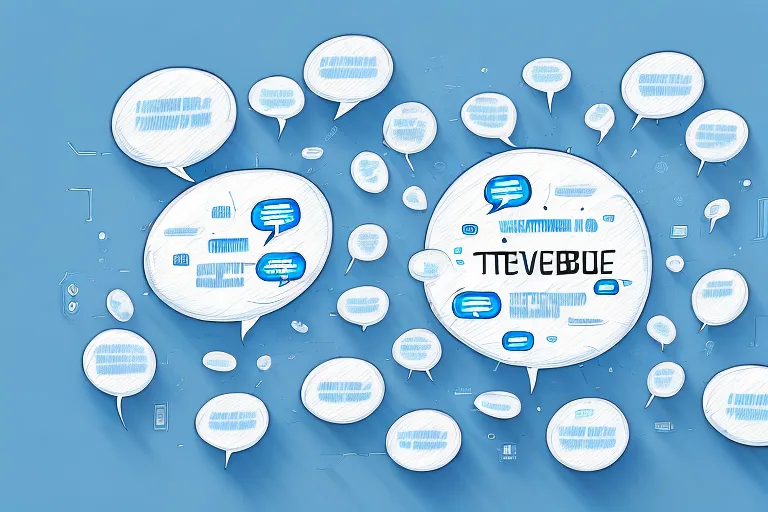Before diving into the depths of Rich Communication Services (RCS), it's essential to understand what the term entails. RCS stands for Rich Communication Services, which refers to a modern form of mobile communication that allows users to enjoy more advanced messaging features than the traditional Short Message Service (SMS) and Multimedia Message Service (MMS).
Understanding RCS: An Overview
Over the past few years, messaging has evolved from basic texts to multimedia messages that can include pictures, videos, and audio files. RCS takes things even further by including features such as read receipts, group chat, high-quality media sharing, and typing indicators with rich text messaging service.While SMS and MMS have been the standard for messaging for many years, they have become outdated in the face of newer and more advanced messaging technologies. Rich Communication Service Message, is set to replace SMS and MMS as the standard for messaging.
The Evolution of Messaging Technologies
The shift to RCS is natural as technology continues to advance. When SMS was first introduced in the 90s, it was groundbreaking because it allowed us to send text messages. A few years later, MMS was introduced, allowing users to send multimedia messages as well. However, these technologies were limited in terms of functionality, making room for RCS to take over the market.With RCS, users can take advantage of a variety of advanced features that were previously unavailable with SMS and MMS. These features include read and typing indicators, group messaging, and the ability to share high-quality images and videos without any compression.
RCS vs. SMS and MMS
One of the biggest advantages of RCS is its lack of restrictions when it comes to file size. SMS and MMS are limited in terms of the file size you can send, while RCS has no such restrictions. With RCS, users can share files of up to 100MB in size, compared to SMS's 160-character limit and MMS's 1MB limit. This makes RCS a much more flexible and versatile messaging platform.Another advantage of RCS is its ability to provide read and typing indicators. With SMS and MMS, it can be difficult to tell if someone has read your message or is in the process of typing a response. RCS solves this problem by providing real-time indicators that let you know when someone has read your message and when they are typing a response.Group messaging is also a major advantage of RCS. With SMS and MMS, group messaging can be clunky and difficult to manage. RCS provides a seamless and intuitive group messaging experience, allowing users to easily communicate with multiple people at once.Finally, RCS allows users to share high-quality images and videos without any compression. This means that the media you share with your friends and family will look just as good as it did when you took it, without any loss of quality due to compression.In conclusion, RCS is the future of messaging. With its advanced features and lack of restrictions, it provides a much more flexible and versatile messaging platform than SMS and MMS. As technology continues to advance, it's likely that more and more people will make the switch to RCS.
The Meaning of RCS: Rich Communication Services
The term "Rich Communication Services" encompasses the numerous features that this technology offers. RCS allows users to enjoy a much richer and fulfilling mobile messaging experience, including more advanced features than SMS and MMS. But what exactly is RCS and how does it work?Rich Communication Services (RCS) is a communication protocol between mobile-telephone carriers and between phone and carrier, aiming to replace SMS messages with a text-message system that is richer, provides phonebook polling (for service discovery), and can transmit in-call multimedia. RCS messaging service is designed to create a universal platform for mobile messaging, providing a consistent and interoperable messaging experience between all devices and networks.
Key Features of RCS
There are several advanced features that RCS offers. Among them are read receipts that allow you to see when the recipient reads your message, group messaging that allows for multiple participants, and typing indicators that let you know when the recipient is typing a response. Additionally, there's the option to send high-quality photos and videos without any compression, as well as audio messages that can be recorded and sent immediately. RCS also offers the ability to share your location, send files, and make voice and video calls, all within the messaging app.
Benefits of RCS for Users
RCS offers numerous benefits for users, including an improved messaging experience. Users can enjoy high-quality multimedia messaging, instant messaging, group chat, and more. Additionally, the technology supports much larger files than SMS and MMS and allows users to share their content without any limits. RCS offers users a rich messaging service and engaging communication experience that was not previously available. With RCS, users can also enjoy a more secure messaging experience, as the protocol includes end-to-end encryption to protect user privacy. RCS is also designed to be compatible with other messaging apps, allowing users to continue using their favorite messaging app while still enjoying the benefits of RCS.In conclusion, RCS is a revolutionary technology that is changing the way we communicate on our mobile devices. With its advanced features and benefits, RCS business messaging is quickly becoming the new standard for mobile messaging. As more carriers and devices adopt RCS, users can expect an even richer and more engaging rich messaging service experience in the future.
RCS Adoption and Implementation
Rich Communication Services (RCS) is a communication protocol that enables rich media messaging, file sharing, and video calls. RCS has been embraced by many players in the telecommunications industry, including Google, Samsung, and LG. This technology is designed to replace traditional SMS messaging.
Major Players Supporting RCS
Google has been one of the early adopters of the technology, launching its RCS client, Google Messages, in 2016. This messaging app offers a wide range of features, including group chats, read receipts, and high-quality media sharing. Google has also collaborated with various mobile network operators to bring RCS to their networks.Samsung, LG, and other phone manufacturers have also started to incorporate RCS as the default messaging service on their devices. Samsung has its own messaging app, Samsung Messages, which supports RCS. LG has also integrated RCS into its messaging app, LG Messaging.Mobile network operators are also supporting RCS. In the United States, AT&T, Sprint, T-Mobile, and Verizon have all adopted RCS. In Europe, Vodafone, Orange, and Deutsche Telekom have also implemented RCS.
Challenges and Limitations of RCS
Despite its potential, there are still many challenges surrounding the adoption and implementation of RCS. One of the biggest challenges for RCS is the lack of a universal standard. This has led to fragmented compatibility, making it difficult for users to enjoy the technology to its full potential.Another challenge is the slow adoption of RCS by mobile network operators. Many operators are still using traditional SMS messaging, which limits the reach of RCS. However, with the rise of 5G, it's expected that RCS will be more widely adopted.Privacy and security are also concerns with RCS. Since RCS messaging are transmitted over the internet, they are vulnerable to hacking and interception. However, RCS has built-in security features, such as end-to-end encryption, to protect users' privacy.In conclusion, RCS is a promising technology that offers a wide range of features and benefits. While there are still challenges and limitations to its adoption, the future looks bright for RCS as more mobile network operators and device manufacturers embrace this technology.
RCS in Business and Marketing
The adoption of RCS represents a new frontier for businesses and marketing, as it offers new opportunities for customer engagement and communication.
How RCS Enhances Customer Engagement
RCS opens up new avenues for communication, including the use of chatbots, interactive media, and more. Chatbots can be programmed to automatically engage with customers on a variety of subjects, improving their overall experience. Additionally, RCS API can provide businesses with more customer data, allowing for a more personalized experience with conversational ad.
RCS Use Cases and Success Stories
Several businesses have successfully implemented RCS in their marketing campaigns. For example, Subway partnered with Google to send RCS business messages to customers to promote their sandwiches. Additionally, two-factor authentication services have relied on RCS to improve security and deliver more reliable verification codes.
The Future of RCS and Messaging
As technology continues to advance, the future of RCS and messaging will undoubtedly change as well.
Potential Innovations in RCS Technology
There's plenty of room for innovation in the RCS space. The integration of Artificial Intelligence (AI) is one potential innovation, which will allow chatbots to provide even more intelligent responses to customers. Additionally, the technology can potentially be used to deliver more advanced multimedia content, such as augmented reality.
RCS and the Rise of 5G
With the introduction of 5G, RCS is expected to become more widely adopted. The high-speed connectivity and low-latency of 5G will make it easier for RCS to function at peak capacity, allowing for a more fluid and engaging customer experience.
Conclusion
RCS has emerged as a modern form of mobile communication, allowing users to enjoy more advanced messaging features than traditional SMS and MMS. Key features of RCS include group messaging, read and typing indicators, and high-quality multimedia sharing. Although there are challenges to the widespread adoption of RCS, it has the potential to revolutionize business and marketing communication. As technology continues to advance, the future of RCS and messaging looks promising, with enormous potential for innovation.

